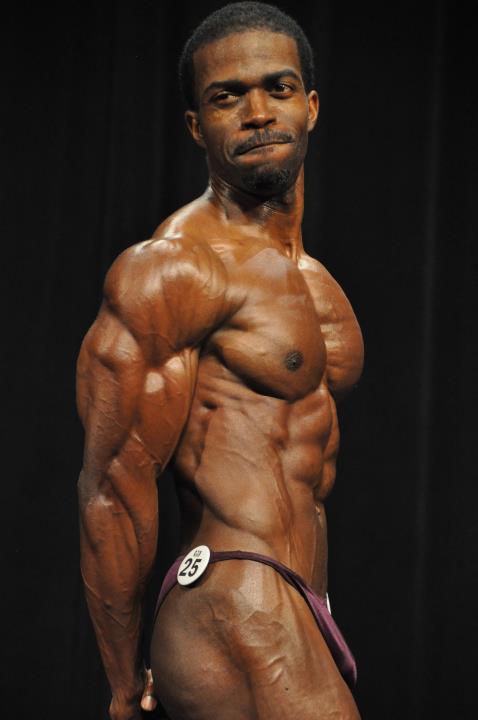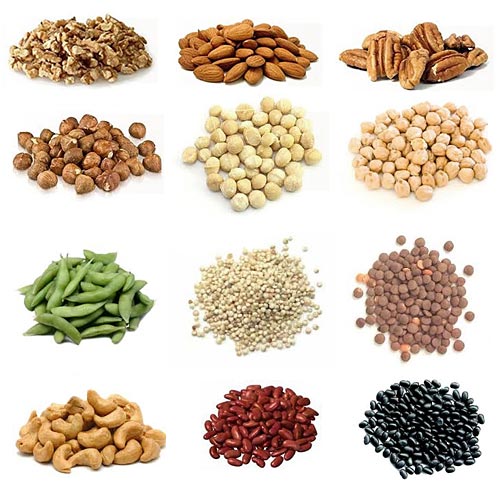- Like
- SHARE
- Digg
- Del
- Tumblr
- VKontakte
- Flattr
- Buffer
- Love This
- Save
- Odnoklassniki
- Meneame
- Blogger
- Amazon
- Yahoo Mail
- Gmail
- AOL
- Newsvine
- HackerNews
- Evernote
- MySpace
- Mail.ru
- Viadeo
- Line
- Comments
- Yummly
- SMS
- Viber
- Telegram
- JOIN
- Skype
- Facebook Messenger
- Kakao
- LiveJournal
- Yammer
- Edgar
- Fintel
- Mix
- Instapaper
- Copy Link
Meat-Free Muscle Building

It has been well documented that protein helps with the formulation and repair of muscle tissues. Therefore, individuals looking to build muscle mass should consume an adequate amount of protein in their diet along with a proper exercise program.
The amount of protein needed for optimal results varies from individual to individual, but typically when people think of protein sources needed for building lean strong muscles, the foods that come to mind are lean meats, eggs, dairy, and whey protein.
However, due to religious, personal, health, or political reasons, there are many groups of people whom do not consume meat or any food derived from an animal. Generally, these people are referred to as vegans or vegetarians.
Is it possible to build muscle without consuming proteins derived from animals?
 The answer is absolutely. Believe it or not, there have been plenty of people who have successfully built great physiques without eating animal products.
The answer is absolutely. Believe it or not, there have been plenty of people who have successfully built great physiques without eating animal products.
A big misconception is that one cannot get an adequate amount of protein or enough complete proteins by simply eating grains, fruits, vegetables, and legumes alone.
However, it is possible to get more than enough protein intake from meat free sources.
Examples include but are not limited to:
Seeds
A half cup of hemp seeds provides roughly 26 grams of protein; a half cup of pumpkin seeds has about 18 grams of protein; a half cup of sesame seeds provides around 10 grams of protein; and a half cup of sunflower seeds has round 13 grams of protein.
Quinoa
A cup of quinoa (uncooked) provides about 20 grams of protein.
Edamame
A cup of this vegetable contains a whopping 16 grams of protein.
Chickpeas
Canned Chickpeas contain around 12 grams of protein per cup.
Lentils
This legume provides approximately 18 grams of protein per cup.
Raw Nuts
A half cup of whole almonds provides 15 grams of protein; a half cup of peanuts has about 14 grams of protein; a half cup of cashews contains roughly 10 grams of protein; and a half cup of pistachio provides about 12 grams.
Beans
A cup of canned black beans provides 15 grams of protein; a cup of canned pinto beans contains 13 grams of protein; and a cup of canned kidney beans 13 grams of protein.
Vegan Protein Powders
There are a variety of different brands of vegan protein powders and the majority of them provide roughly around 20 grams of protein per serving.
What about complete proteins?
Complete proteins are a source of protein that contains an adequate proportion of all nine of the essential amino acids. All animal products contain complete proteins, but there are only five plant sources that are complete proteins. They include quinoa, buckwheat, hempseed, blue green algae, and soybeans. Although most grains, legumes, and nuts are not complete proteins, it is possible to consume all the essential amino acids by pairing two of the aforementioned three food groups. For example, beans and rice, oats and almonds, or kidney bean walnut salad.
Lay the misconceptions to rest. With proper nutrition and supplementation, it is more than possible to consume the necessary proteins to build a significant amount of muscle mass without animal products.
About Julian Brown
JulianBrownTraining.com Julian is the co-owner of The Yard Fitness, an established fitness writer, a professional natural bodybuilder, a fitness & sport nutrition specialist, and a certified personal trainer. He began strength training at the young age of fourteen to improve his sports performance and hasn’t looked back since. Julian is a graduate of Grambling State University, ACE & NASM certified, and he has over a decade of personal experience in strength training.
